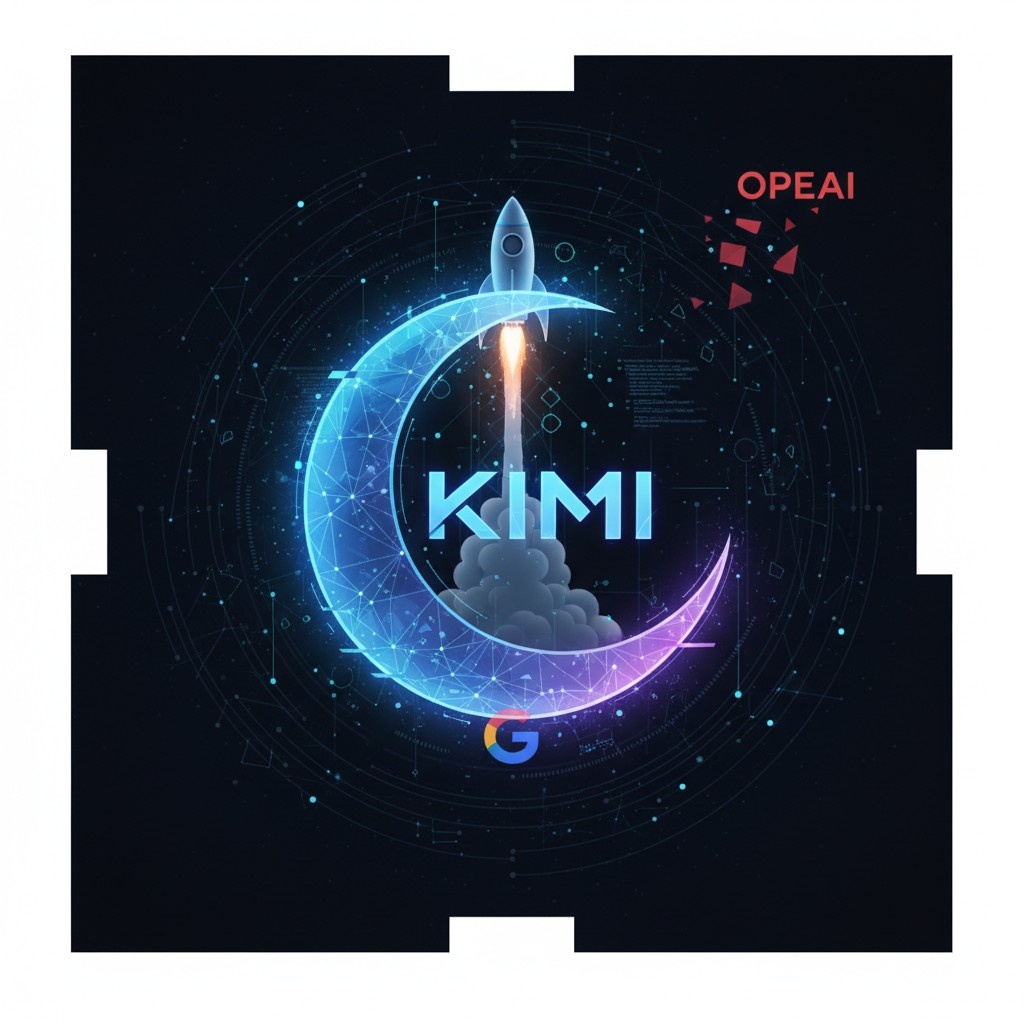Moonshot Kimi: Google's AI Revolution Takes Aim at OpenAI

The race for AI dominance has taken a dramatic turn as whispers from inside Google confirm the existence of "Moonshot Kimi," a highly ambitious internal project aimed squarely at outperforming OpenAI's formidable GPT-4. This initiative signals Google's intent to reassert its leadership in the rapidly evolving field of generative artificial intelligence, setting the stage for an intense showdown that could redefine the industry's future.
Background / Context
For years, Google has been at the forefront of AI research, developing foundational models and pioneering concepts that underpin much of today's AI landscape. However, the unexpected public success and rapid advancement of OpenAI, particularly with models like ChatGPT and GPT-4, caught many off guard, including industry giants. OpenAI's ability to democratize powerful AI capabilities quickly propelled it into a leading position, sparking a competitive fervor among tech's biggest players. Google’s response has been multifaceted, including the release of its own Bard AI, but "Moonshot Kimi" appears to be a dedicated, high-stakes effort to reclaim its perceived lead.
Key Developments / Details
While specifics remain under tight wraps, "Moonshot Kimi" is understood to be a concentrated effort to develop a large language model (LLM) that not only matches but significantly surpasses GPT-4 in key metrics such as reasoning, creativity, efficiency, and multimodal capabilities. The project is rumored to involve some of Google's top AI talent, operating with considerable resources and a directive to innovate aggressively. Insiders suggest that Kimi aims to integrate advanced capabilities beyond text generation, potentially encompassing sophisticated image, video, and even interactive simulations, pushing the boundaries of what current generative AI can achieve.
Technical Explanation
At its core, "Moonshot Kimi" is expected to leverage breakthroughs in neural network architectures and massive datasets. Imagine an AI that doesn't just predict the next word but truly understands context, nuance, and intent across various data types. This involves moving beyond mere pattern recognition to more robust common-sense reasoning and a deeper integration of world knowledge. The project likely focuses on more efficient training methodologies and novel inference techniques, allowing for more powerful and less resource-intensive AI models. This could manifest as AI that can generate complex code, compose entire musical pieces, or even design functional prototypes with minimal human input, all while understanding complex queries in natural language.
Implications
The successful launch of "Moonshot Kimi" would have profound implications across numerous sectors. For consumers, it could mean more intelligent personal assistants, more realistic virtual experiences, and new tools for creativity and productivity. Businesses could see revolutionary changes in content creation, data analysis, and automation. The broader AI industry would undoubtedly be pushed to innovate further, leading to an accelerated pace of development. Ethically, a more powerful AI would necessitate heightened discussions around bias, accountability, and the responsible deployment of such advanced technology, making clear guidelines and safeguards more critical than ever.
Challenges / Limitations
Developing an AI model to rival or surpass GPT-4 is an enormous undertaking, fraught with technical hurdles. The sheer computational power required for training such a model is immense, and the complexity of ensuring accuracy, reducing bias, and maintaining safety at scale are formidable challenges. There’s also the risk of overhyping capabilities without delivering tangible advancements, a common pitfall in rapidly evolving tech fields. Moreover, the battle for top AI talent and proprietary data remains intense, adding layers of competitive pressure.
Future Outlook
Should "Moonshot Kimi" achieve its ambitious goals, it could fundamentally reshape the competitive landscape of generative AI, solidifying Google’s position as a dominant force. This project is not merely about creating a better chatbot; it's about pushing the frontier of what machines can understand, create, and achieve. We can expect to see further advancements in multimodal AI, where systems seamlessly blend text, images, audio, and more. The outcome of "Moonshot Kimi" will undoubtedly influence research directions, investment priorities, and the ethical frameworks governing AI development for years to come.
Conclusion / Summary
Google's "Moonshot Kimi" represents a significant stride in the ongoing AI revolution, a direct challenge to the current benchmarks set by OpenAI. Its potential to redefine generative AI capabilities promises a future where artificial intelligence is more intuitive, creative, and transformative than ever before. This high-stakes endeavor is certainly one to watch, as its success or failure will reverberate throughout the global technology landscape.